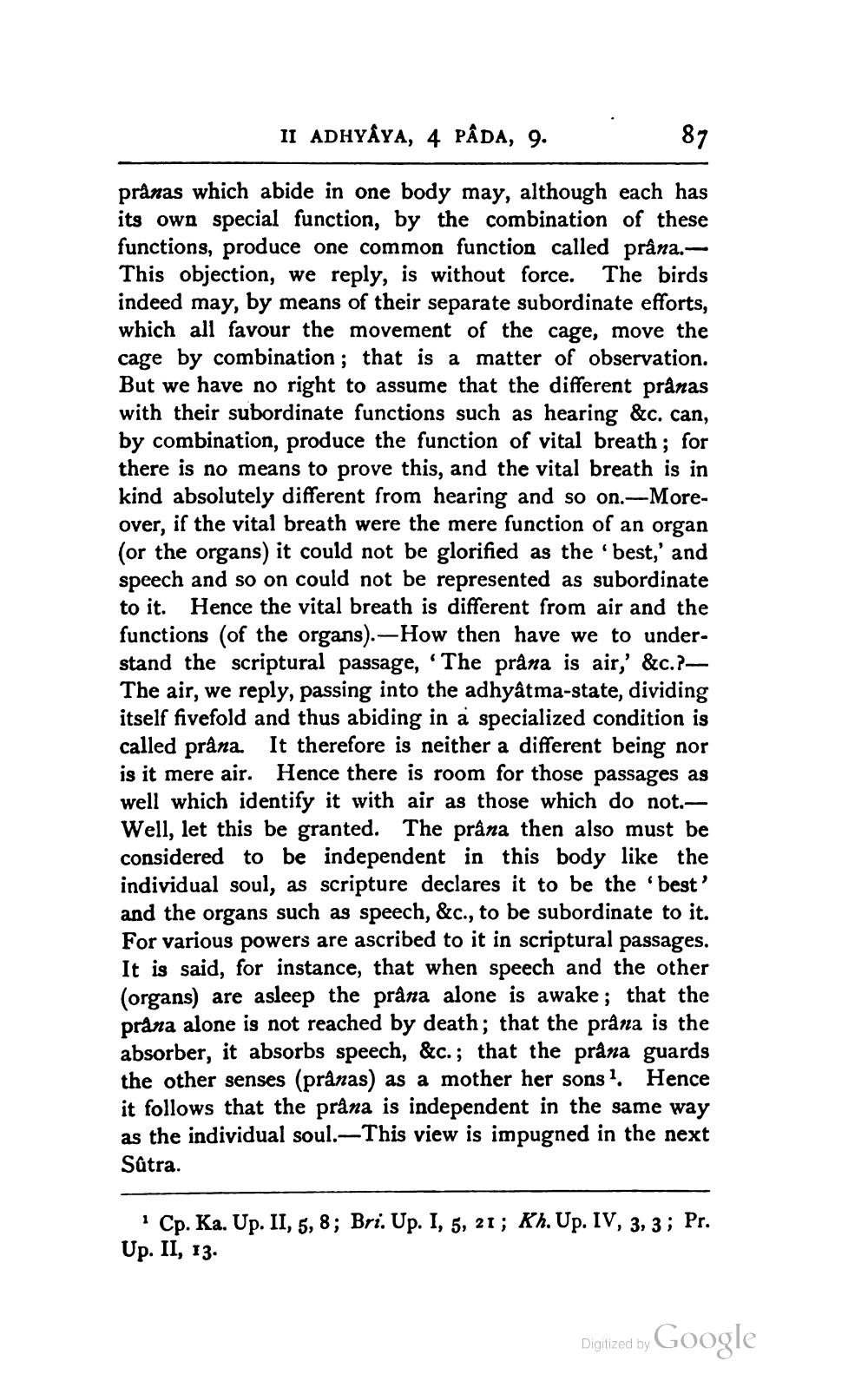________________
II ADHYÂYA, 4 PÂDA, 9.
87
pranas which abide in one body may, although each has its own special function, by the combination of these functions, produce one common function called prâna.This objection, we reply, is without force. The birds indeed may, by means of their separate subordinate efforts, which all favour the movement of the cage, move the cage by combination; that is a matter of observation. But we have no right to assume that the different pranas with their subordinate functions such as hearing &c. can, by combination, produce the function of vital breath; for there is no means to prove this, and the vital breath is in kind absolutely different from hearing and so on.-Moreover, if the vital breath were the mere function of an organ (or the organs) it could not be glorified as the 'best,' and speech and so on could not be represented as subordinate to it. Hence the vital breath is different from air and the functions (of the organs).—How then have we to understand the scriptural passage, 'The prâna is air,' &c.?The air, we reply, passing into the adhyâtma-state, dividing itself fivefold and thus abiding in a specialized condition is called prâna. It therefore is neither a different being nor is it mere air. Hence there is room for those passages as well which identify it with air as those which do not.Well, let this be granted. The prâna then also must be considered to be independent in this body like the individual soul, as scripture declares it to be the 'best' and the organs such as speech, &c., to be subordinate to it. For various powers are ascribed to it in scriptural passages. It is said, for instance, that when speech and the other (organs) are asleep the prâna alone is awake; that the prana alone is not reached by death; that the prana is the absorber, it absorbs speech, &c.; that the prâna guards the other senses (pranas) as a mother her sons ?. Hence it follows that the prana is independent in the same way as the individual soul.—This view is impugned in the next Sûtra.
Cp. Ka. Up. II, 5, 8; Bri. Up. I, 5, 21; Kh. Up. IV, 3, 3 ; Pr. Up. II, 13.
Digitized by
Digitized by Google




